PsychNewsDaily Publishers
100 Summit Drive
Burlington, MA, 01803
Telephone: (320) 349-2484
PsychNewsDaily Publishers
100 Summit Drive
Burlington, MA, 01803
Telephone: (320) 349-2484
Missouri offers numerous free mental health services, including counseling, crisis support, and medication management, accessible through community centers, universities, and state programs for eligible residents.
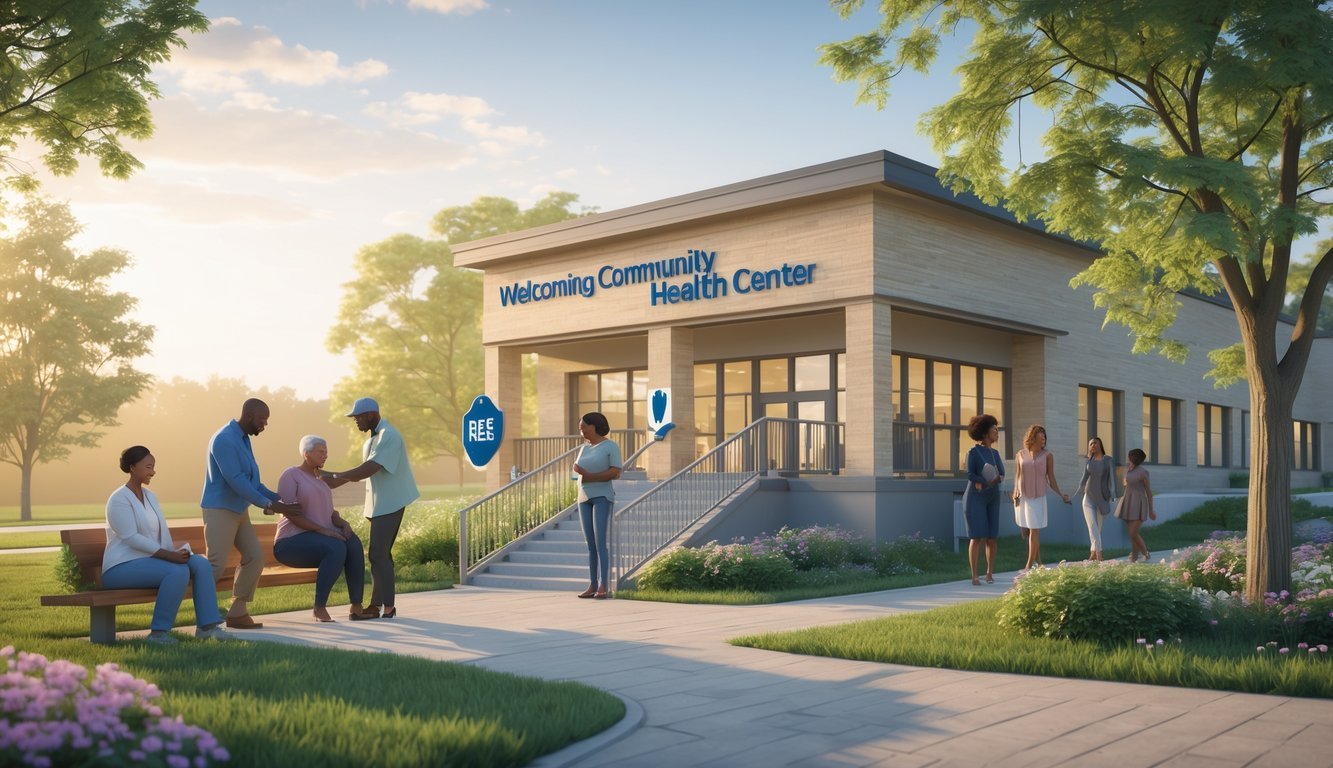
Getting mental health support shouldn’t depend on your wallet. Missouri has a bunch of free mental health services through state programs, community centers, and university clinics. You’ll find counseling, therapy, and crisis support at no cost if you live here.
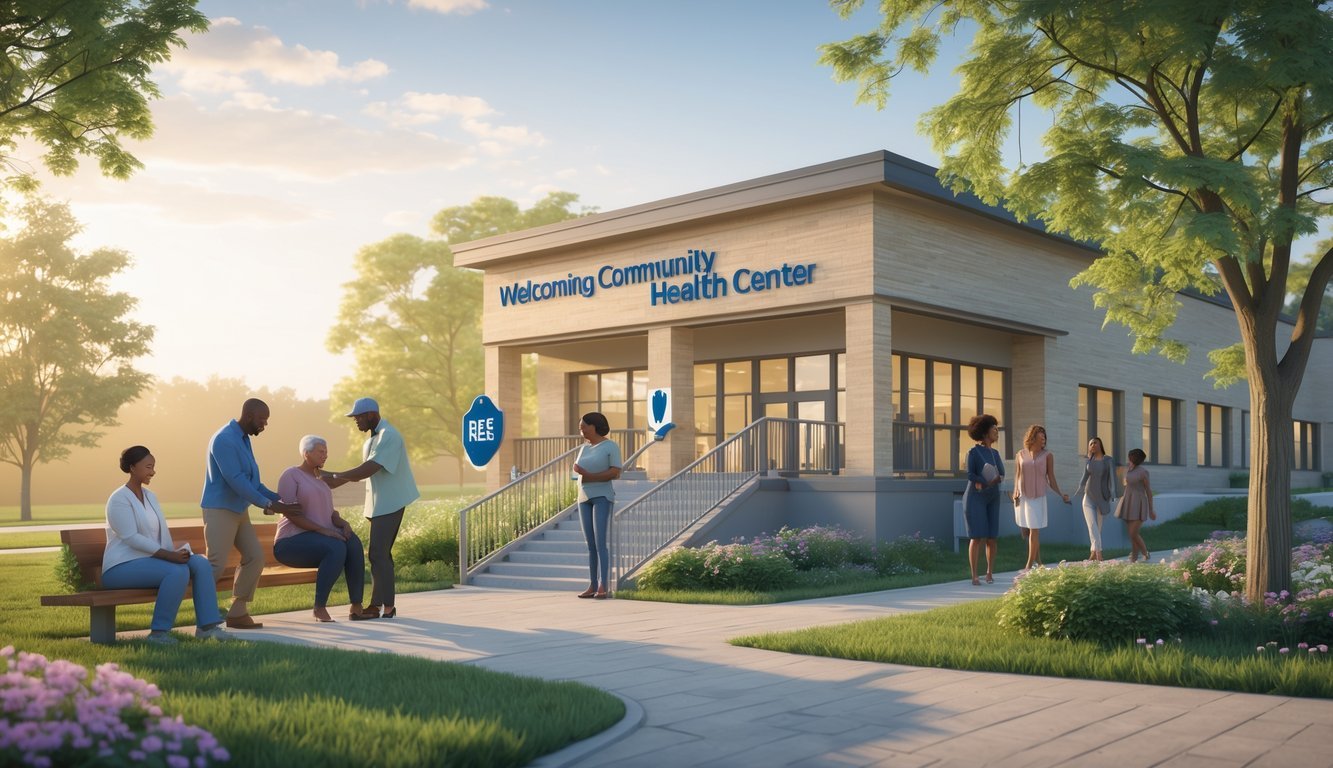
You can get free mental health care in Missouri through community mental health centers, university counseling programs, crisis hotlines, and state-funded outreach that helps thousands every year. The University of Missouri-St. Louis runs a network of mental health centers that serve a ton of individuals and families, and other schools do similar work across the state.
If you need crisis help, ongoing therapy, or something more specialized, Missouri’s network of providers is ready to help out. Knowing your options and how to reach them can mean the difference between struggling alone and getting the support you need.
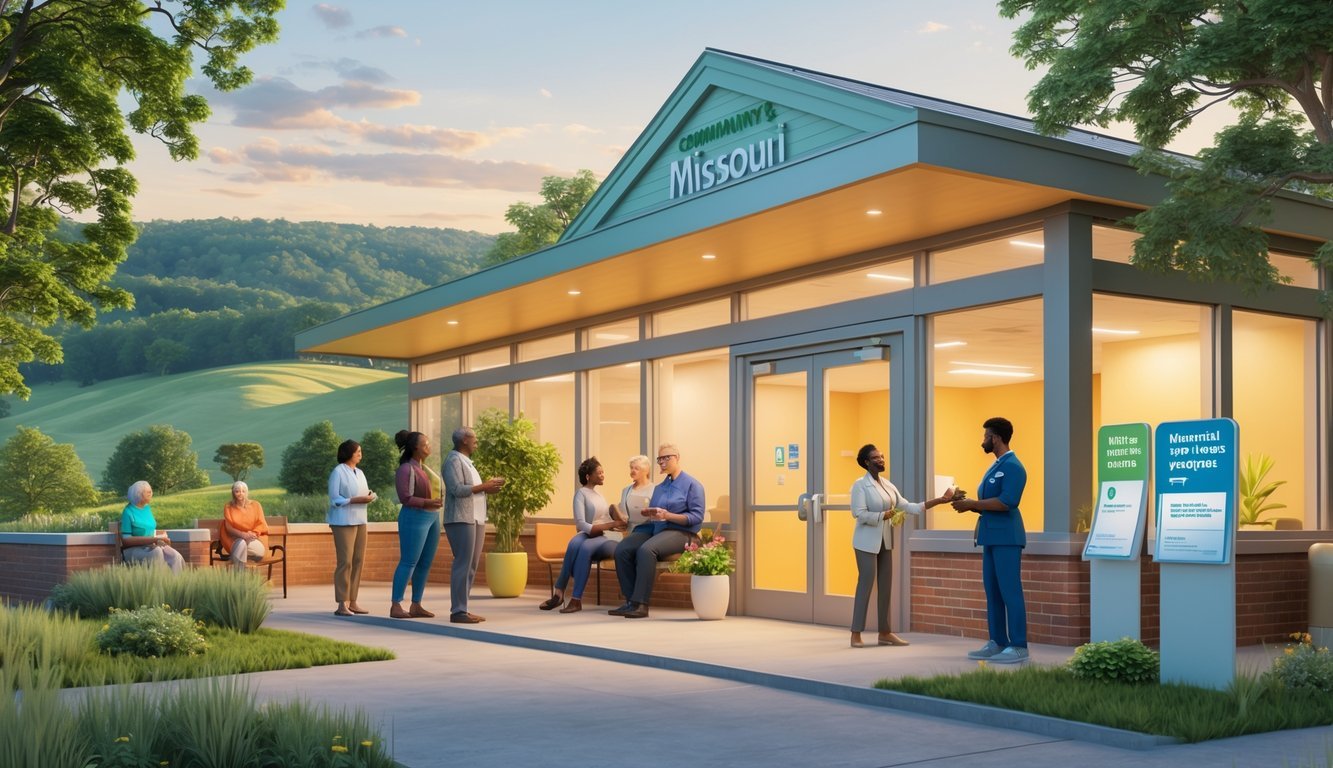
Missouri gives residents access to free mental health services through state programs, community centers, and university partnerships. These services cover different types of treatment and reach across the state, though you’ll need to meet some eligibility rules.
Missouri’s Department of Mental Health runs behavioral health programs that address both substance use and mental illness. Check out their overview here.
You can get individual counseling at community mental health centers. Licensed therapists provide these sessions for free.
Most regions have group therapy programs. They focus on issues like depression, anxiety, or trauma recovery.
Crisis intervention services run 24/7 statewide. You can call a hotline or go to an emergency mental health facility if things get urgent.
State programs offer psychiatric medication management too. Psychiatrists meet with you, review your needs, and prescribe medication if needed.
Some programs target specific groups like kids, teens, or adults with severe mental illness. These offer more intensive outpatient care and case management.
Most free mental health services in Missouri use income guidelines. You usually need to earn less than 200% of the federal poverty level.
You’ll need to prove you live in Missouri. Bring a utility bill or lease as proof.
Some services only accept people who are uninsured or underinsured. You might have to show insurance info before you’re enrolled.
Age rules depend on the program. Adult services start at 18, youth programs are for those under 18.
People in crisis or with severe mental illness get priority. They’re placed in treatment programs right away.
You’ll need photo ID and proof of income. Some places might ask for medical records or info about past treatment.
Missouri splits mental health services into regional networks covering all 114 counties. Each region runs several community mental health centers.
Urban spots like St. Louis and Kansas City have the most locations. UMSL has a big outreach network that helps thousands of families every year.
People in rural areas get services from traveling clinics and telehealth programs. These bring mental health pros to less-served towns on a set schedule.
Regional coverage makes sure every county can access basic mental health care. Some counties share resources to reach more people.
Lots of counties offer help with transportation, like bus vouchers or volunteer drivers, for those who can’t get there on their own.
Remote regions often use telehealth for therapy and medication management. You can connect at a local library or community center with internet.
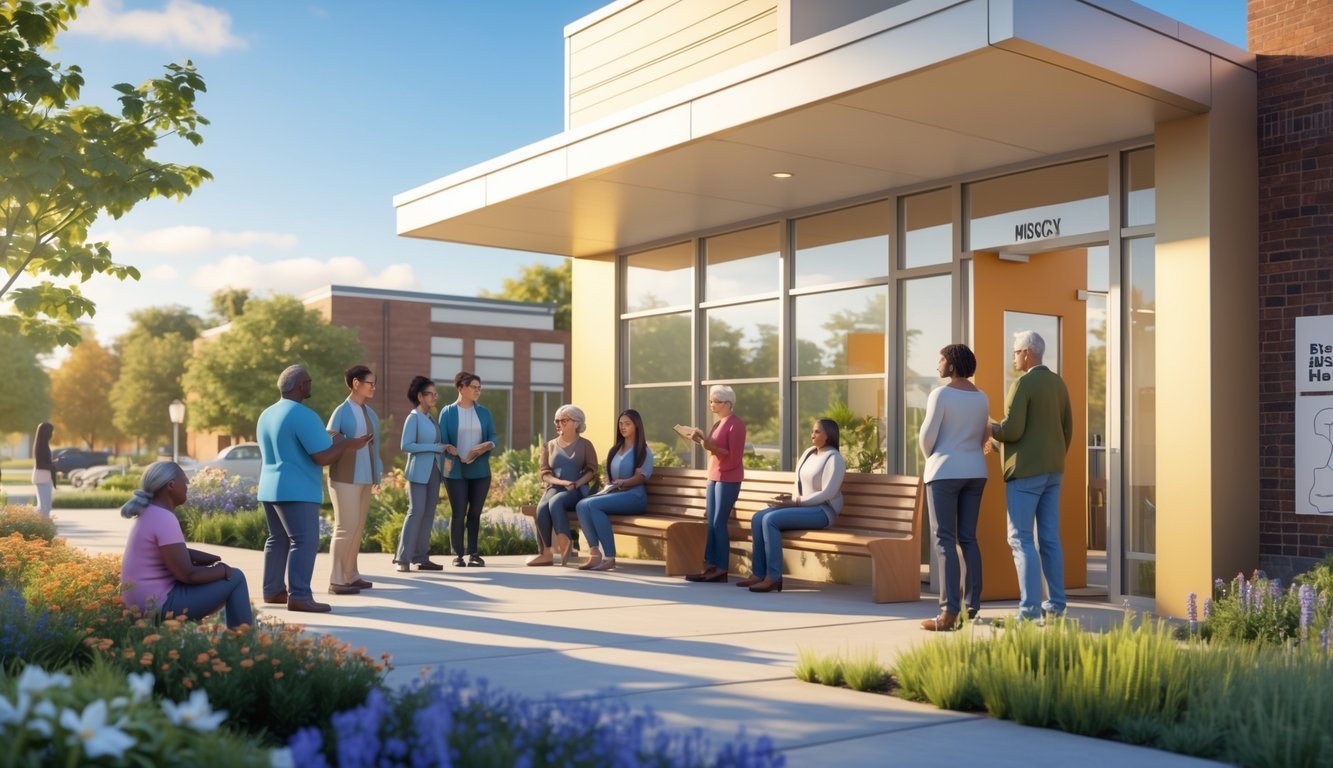
Missouri’s biggest mental health providers offer free and low-cost services across the state. These organizations run regional centers and work with local health systems.
Compass Health Network stands out as one of Missouri’s largest community mental health providers. They have several locations in the Kansas City area and nearby counties.
You can get care at their main spots in Jackson, Clay, and Platte counties. Each place offers different specialty programs based on what the area needs.
Their crisis intervention services run 24/7. You can call their hotline or walk into a center if you’re in an emergency.
Services you’ll find:
Behavioral health organizations in Missouri act as a safety net for people without insurance or who are underinsured. State and federal funding helps them provide free care.
Some use sliding fee scales based on your income, and if you qualify, you might not have to pay at all.
The University of Missouri-St. Louis has a mental health network that helps thousands yearly. They train new mental health professionals and offer direct care.
These groups often team up with hospitals, schools, and community centers. That way, they reach more people who need help.
Missouri splits up mental health services by region so everyone gets coverage. Each region has designated community mental health centers for certain counties.
Northwest Missouri has centers for rural communities and small towns, often sending out mobile crisis teams to remote spots.
Central Missouri focuses on urban areas like Columbia and Jefferson City. Missouri State University works with local providers to expand services for students and the community.
Southeast Missouri serves both city and rural folks, with special programs for farm workers and their families.
Southwest Missouri covers Springfield and nearby counties, often working closely with area hospitals.
You can call your local center or use Missouri’s mental health hotline to get referred to the right place.
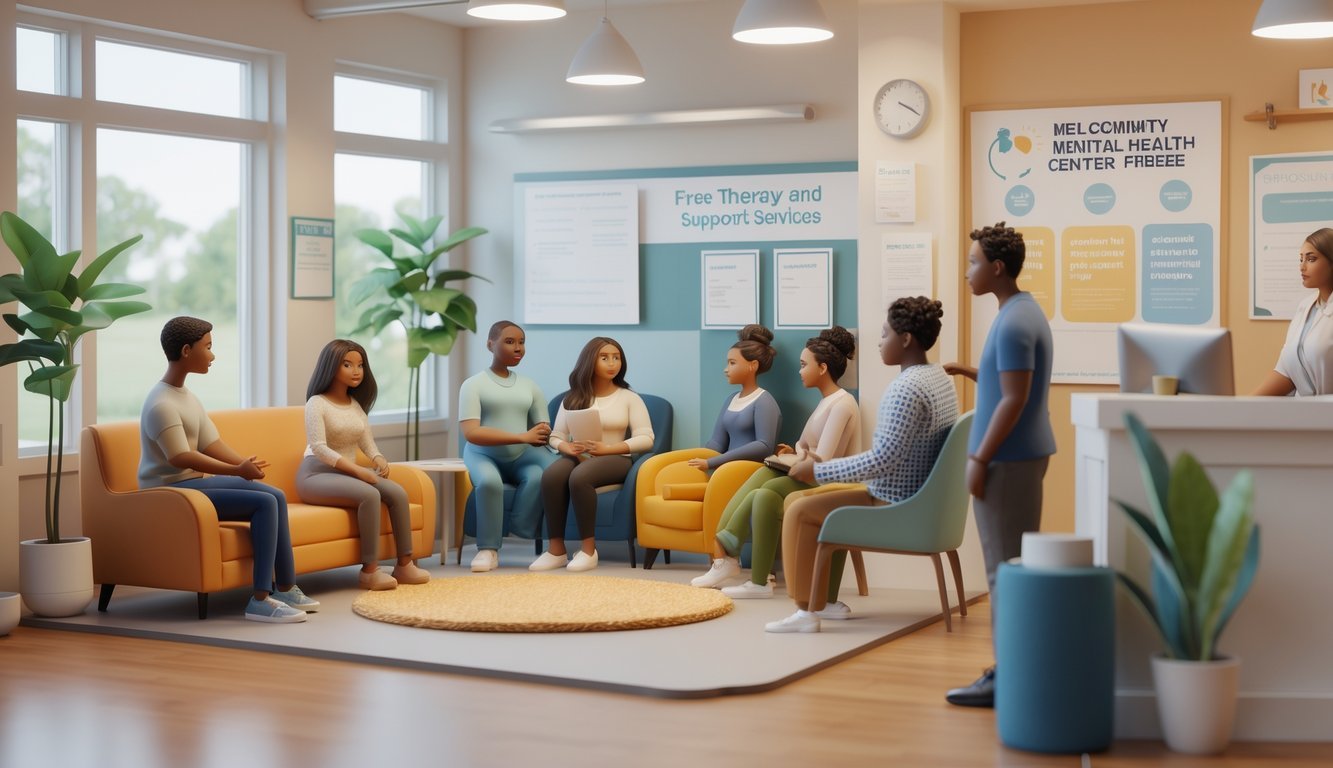
Missouri provides all sorts of free mental health care through community centers, universities, and state-run programs. You’ll find traditional therapy and specialized support for different groups.
Lots of organizations in Missouri offer free individual and group therapy. UMSL’s Community Psychological Service provides adult, child, family, and group therapy at their outpatient center.
You can walk in or set up an appointment. Most programs offer both in-person and virtual sessions.
Therapy types you’ll see:
Saint Louis University’s Center for Counseling and Family Therapy offers affordable counseling for anyone in St. Louis. Many of these are run by grad students under supervision.
Community mental health centers all over Missouri use sliding-scale fees. For low-income folks, many services are free.
Peer support programs connect you with trained volunteers who’ve gone through similar struggles. They add a real-world perspective that’s sometimes missing from clinical care.
Crisis intervention services are available 24/7. You can reach out by phone or get help from a mobile crisis team.
Support options:
Community and faith-based groups often run peer support programs. These focus on coping skills and building social connections.
Crisis teams work with hospitals and police to provide on-site mental health care during emergencies and link you to ongoing help.
Missouri has targeted mental health programs for people facing extra challenges. These help folks who are homeless, living with disabilities, or in recovery.
The University of Missouri’s Disability Center supports disabled students with mental health accommodations. They want campus to feel welcoming for everyone.
Specialized programs:
Community health centers often team up with social service agencies. This way, they can help with mental health needs and basics like housing or food.
Kids, teens, and families can get free mental health care through schools and community programs. These services focus on development and family relationships.
Missouri State’s Magers Health and Wellness Center offers financial help so students can get counseling and psychiatric care. The BearsWin fund helps break down money barriers.
Resources include:
Veterans can get specialized mental health care through VA centers and community partners. These programs address trauma and help with the transition to civilian life.
The Missouri Mentoring Partnership gets federal funding to support youth development. Many programs include mental health and peer support.
Finding mental health support can feel overwhelming, but Missouri has lots of ways to connect you to free services. You can use online directories or reach out to local programs.
Start with SAMHSA’s national treatment locator at findtreatment.samhsa.gov. This lists mental health centers in Missouri with sliding scale or free care.
The Missouri Department of Mental Health keeps a directory of community mental health centers. You can search by county to find what’s near you.
Hotlines to know:
Universities offer resources too. University of Missouri supports student mental health with several campus services. UMSL runs outreach centers that serve thousands each year.
You can also dial 2-1-1 to reach your local 211 service. Trained specialists can point you to free mental health services nearby.
Each Missouri county runs community mental health centers with state and federal funding. These centers form the backbone of free mental health care in the state.
Call your county health department to get a list of providers and learn about eligibility for free services.
How to get started:
Some counties offer same-day crisis services. Others have walk-in hours for people who need help right away.
Federally Qualified Health Centers (FQHCs) in Missouri also provide mental health care on a sliding scale. They can’t turn you away if you can’t pay.
Most free mental health services get their funding from Medicaid, state grants, or federal block grants. These sources open some doors but also set a lot of limits.
Common Eligibility Requirements:
You’ll probably run into waitlists for ongoing therapy. Crisis services and first-time assessments usually have spots right away, which is a relief.
Try calling a few different providers to see who can get you in sooner. Some mental health centers actually have much shorter waitlists than others nearby.
It’s worth asking about group therapy. Those groups often have more open slots than one-on-one counseling. Peer support programs also tend to have immediate openings, which can help if you need something fast.
If things are really busy, maybe try telehealth. Some places offer virtual appointments, and honestly, those can be easier to get than in-person visits.